The President who tackled Communism, Fascism and Nazism
FRANKLIN ROOSEVELT 1882-1945
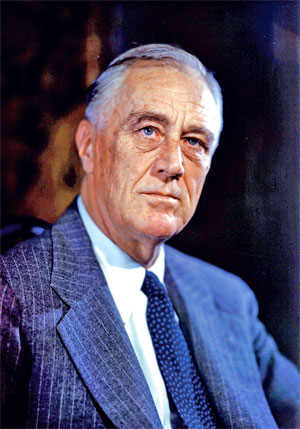 In 1932 a democratic party nominated a candidate for presidency; Franklin D. Roosevelt who eventually won the presidential election in the USA thereby facing many challenges thus tackling numerous issues that existed within the country propelling it towards a world of superpower! Franklin Delano Roosevelt who was often referred by the initials FDR, was an American statesman and a political leader who served as the 32nd president of the United States from 1933 until his death in 1945. As a member of the Democratic Party, he won a record for four presidential elections (in 1932, 1936,1940 and in 1944) thus becoming a central figure in world events during the first half of the 20th century.
In 1932 a democratic party nominated a candidate for presidency; Franklin D. Roosevelt who eventually won the presidential election in the USA thereby facing many challenges thus tackling numerous issues that existed within the country propelling it towards a world of superpower! Franklin Delano Roosevelt who was often referred by the initials FDR, was an American statesman and a political leader who served as the 32nd president of the United States from 1933 until his death in 1945. As a member of the Democratic Party, he won a record for four presidential elections (in 1932, 1936,1940 and in 1944) thus becoming a central figure in world events during the first half of the 20th century.
Roosevelt directed the federal government during most of the Great Depression, implementing his New Deal domestic agenda in response to the worst economic crisis in U.S. history. As a dominant leader of his party, he built the New Deal Coalition, which realigned American politics into the Fifth Party System and defined American liberalism throughout the middle third of the 20th century. Roosevelt hailed from a prominent family in New York relating to Theodore Roosevelt a US president himself who was also the winner of the Nobel Peace Prize in 1906. Thus the Roosevelt family being of high influential status therebyprominently figured in the New York high society. Franklin was educated at home and later attended Colombia University and became a lawyer.
He briefly practiced law but it was politics that attracted his temperament. Roosevelt held little passion for the practice of law and confided to friends that he planned to eventually enter politics. Despite his admiration for his cousin, Theodore, Franklin inherited his father’s affiliation with the Democratic Party. Prior to the 1910 elections, the local Democratic Party recruited Roosevelt to run for a seat in the New York State Assembly. Roosevelt was an attractive recruit for the party sinceTheodore Roosevelt was still one of the country’s most prominent politicians, and a Democratic Roosevelt was good publicity. Yet nevertheless Roosevelt feared that open opposition from Theodore could effectively end his campaign, but Theodore privately encouraged his cousin’s candidacy despite their differences in partisan affiliation.
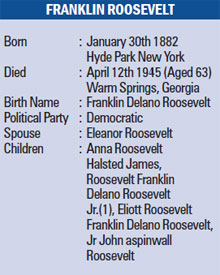 Acting as his own campaign manager, Roosevelt traveled throughout the senate district via automobile at a time when many could not afford cars.Due to his aggressive and effective campaign, the Roosevelt name’s influence in the Hudson Valley, and the Democratic landslide that year, Roosevelt won the election, surprising almost everyone. Roosevelt held his appointment as Assistant Secretary of the Navy in March in 1913, the second-ranking official in the Navy Department after Secretary Josephus Daniels. Roosevelt had a lifelong affection for the Navy—he had already collected almost 10,000 naval books and claimed to have read all but one—and was more ardent than Daniels in supporting a large and efficient naval force.
Acting as his own campaign manager, Roosevelt traveled throughout the senate district via automobile at a time when many could not afford cars.Due to his aggressive and effective campaign, the Roosevelt name’s influence in the Hudson Valley, and the Democratic landslide that year, Roosevelt won the election, surprising almost everyone. Roosevelt held his appointment as Assistant Secretary of the Navy in March in 1913, the second-ranking official in the Navy Department after Secretary Josephus Daniels. Roosevelt had a lifelong affection for the Navy—he had already collected almost 10,000 naval books and claimed to have read all but one—and was more ardent than Daniels in supporting a large and efficient naval force.
With Wilson’s support, Daniels and Roosevelt instituted a merit-based promotion system and made other reforms to extend civilian control over the autonomous departments of the Navy. Roosevelt oversaw the Navy’s civilian employees and earned the respect of union leaders for his fairness in resolving disputes. Not a single strike occurred during his seven-plus years in the office during which Roosevelt gained experience in labor issues, government management during wartime, naval issues, and logistics, all valuable areas for future office. As the 1932 presidential election approached, Roosevelt increasingly turned his attention to national politics. He established a campaign team led by Howe and Farley and a “brain trust” of policy advisers.
With the economy ailing, many Democrats hoped that the 1932 elections would result in the election of the first Democratic president since Woodrow Wilson. Roosevelt’s re-election as governor had established him as the frontrunner for the 1932 Democratic presidential nomination. Although Roosevelt was elected in November 1932 yet similarly to his predecessors, did not take office until the following March. After the election, President Hoover sought to convince Roosevelt to renounce much of his campaign platform and to endorse the Hoover administration’s policies. Roosevelt refused Hoover’s request to develop a joint programme to stop the downward economic spiral, claiming that it would tie his hands, and that Hoover had all the power to act if necessary. . Roosevelt appointed powerful men to top positions but made all the major decisions, regardless of delays, inefficiency or resentment.
The president stayed in charge of his administration...by drawing fully on his formal and informal powers as Chief Executive; by raising goals, creating momentum, inspiring a personal loyalty, getting the best out of people...by deliberately fostering among his aides a sense of competition and a clash of wills that led to disarray, heartbreak, and anger but also set off pulses of executive energy and sparks of creativity...by handing out one job to several men and several jobs to one man, thus strengthening his own position as a court of appeals, as a depository of information, and as a tool of co-ordination; by ignoring or bypassing collective decision-making agencies, such as the Cabinet...and always by persuading, flattering, juggling, improvising, reshuffling, harmonizing, conciliating and manipulating!
Franklin Roosevelt was born in Hyde Park, New York, to a Dutch American family made well known by Theodore Roosevelt, the 26th president of the United States, and William Henry Aspinwall. FDR attended Groton School, Harvard College, and Columbia Law School, and went on to practice law in New York City. He learned to ride, shoot, row, and to play polo and lawn tennis. And then took up golf in his teen years, becoming a skilled long hitter. He was a club champion in his late teen years at the small golf club on Campobello Island, New Brunswick, Canada, where his family had a summer cottage. He learned to sail early, and when he was 16, his father gifted him a sailboat.
Like most of his Groton classmates, Roosevelt went to Harvard College and was an average student academically and he later declared, “I took economics courses in college for four years, and everything I was taught was wrong.” He was a member of the Alpha Delta Phi fraternity and the Fly Club.Roosevelt was relatively undistinguished as a student or athlete, but he became editor-in-chief of The Harvard Crimson daily newspaper, a position that required great ambition, energy, and the ability to manage others. In mid-1902, Franklin began courting his future wife Eleanor Roosevelt, with whom he had been acquainted as a child. Eleanor and Franklin were fifth cousins, once removed, and Eleanor was a niece of Theodore Roosevelt.
They began corresponding with each other in 1902, and in October 1903 Franklin proposed marriage to Eleano and had six children. Paralytic illness and political comeback (1921–1928) After the election, Roosevelt returned to New York City, where he practiced law and served as a vice president of the Fidelity and Deposit Company. He also sought to build support for a political comeback in the 1922 elections, but his career was derailed by illness. While the Roosevelts were on vacation at Campobello Island in August 1921, Roosevelt fell ill. His main symptoms were fever; symmetric, ascending paralysis; facial paralysis; bowel and bladder dysfunction; numbness and hyperesthesia; and a descending pattern of recovery.
Roosevelt was left permanently paralyzed from the waist down. He was diagnosed with poliomyelitis at the time, but his symptoms are more consistent with Guillain–Barré syndrome – an autoimmune neuropathy which Roosevelt’s doctors failed to consider as a diagnostic possibility. Although he was struck with Polio in 1921 which limited movements of his legs permanently yet nevertheless he did not let his illness dampen his spirits or his enthusiasm in life or for politics which he carried forward and mustered courage in life in achieving his goals until his untimely death in 1945.
Nilanthi Wickramasinghe

















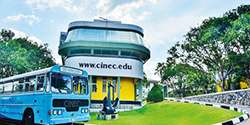





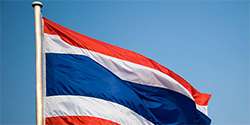




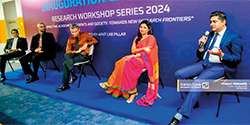



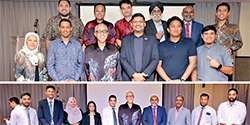

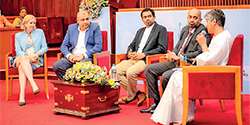
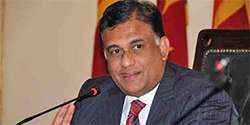


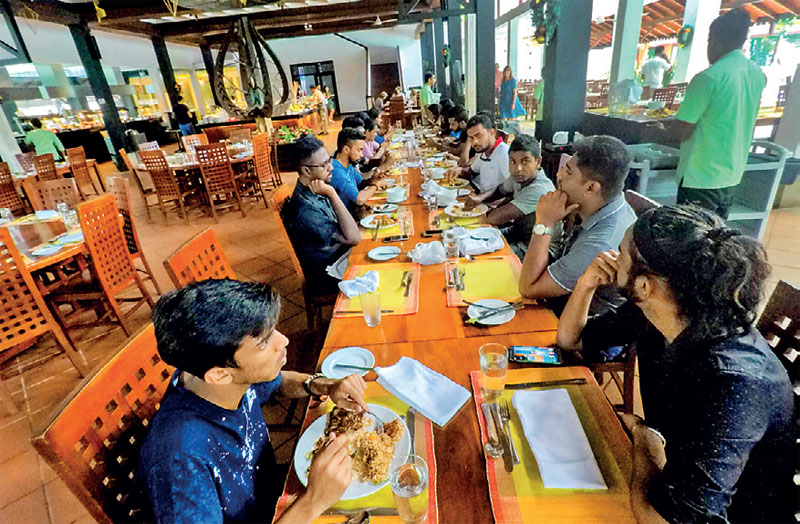
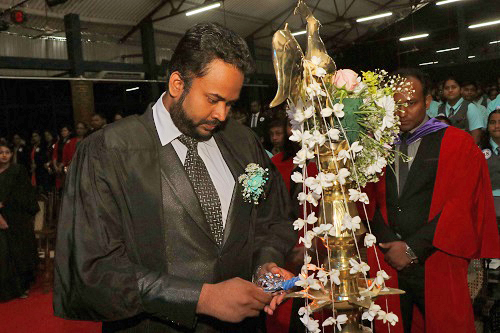

.jpg)

.jpg)
.jpg)
.jpg)
.jpg)
